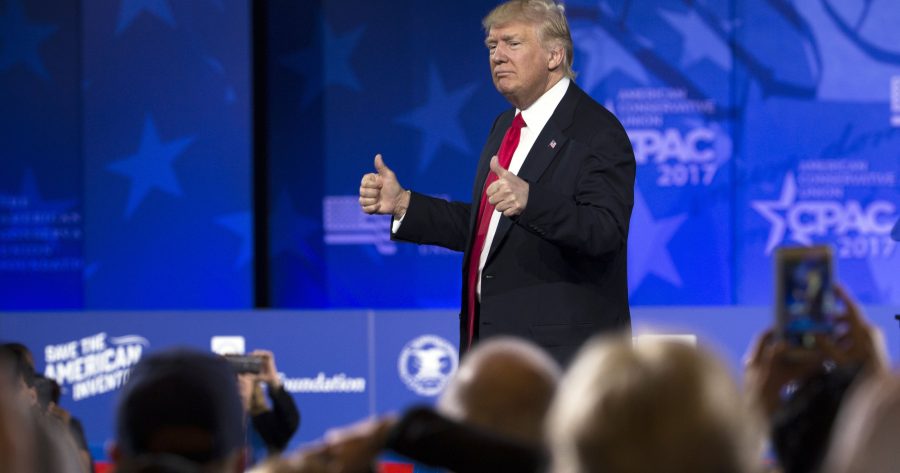The University of California Office of the President released a statement on March 4 in reaction to President Donald Trump’s vow at the Conservative Political Action Conference that he will be signing an executive order requiring colleges and universities to “support free speech” in order to qualify for federal research funding.
In his speech, Trump acknowledged conservative activist Hayden Williams, who made headlines when he was allegedly punched in the face at UC Berkeley on Feb. 19. Williams had been invited to the university to help recruit students to the Berkeley chapter of Turning Point USA, a conservative non-profit organization.
“If they want our dollars, and we give it to them by the billions, they’ve got to allow people like Hayden and many other great young people and old people to speak,” Trump told the crowd at CPAC.
On March 5, the Alameda County District Attorney’s Office filed three felony charges and a misdemeanor against Zachary Greenberg, Williams’s alleged attacker. Greenberg is not a student at UC Berkeley.
“Free speech is a fundamental value of the University of California and we already have strong policies in place that protect the free expression of ideas, regardless of political persuasion,” UC President Janet Napolitano said in the statement. “Protecting free expression has been part of the University of California’s DNA for decades. We do not need the federal government to mandate free speech on college campuses — that tradition is alive and thriving.”
Berkeley is regarded as the birthplace of the 1964 Free Speech Movement, which was inspired by the Civil Rights Movement and opposition to the Vietnam War. Student activists launched massive, year-round protests against the administration’s ban on on-campus political activities.
Critics of the UC system say that not enough effort has been made towards protecting the free speech of conservatives. In 2017, right-wing commentator Milo Yiannopoulos was invited to deliver a speech at UC Berkeley by the Berkeley College Republicans, but violent protests that erupted in the days prior to Yiannopoulos’s appearance led university administrators to cancel the event two hours before his speech, citing “the violence and destruction of property and out of concern for public safety.”
In response to the cancellation of Yiannopoulos’s speech, Trump had threatened to withhold federal dollars from UC Berkeley for “not [allowing] free speech and [practicing] violence on innocent people with a different point of view.” No further action was taken by the President at the time.
In their recent statement, the UCOP said that it responds “strongly” and “appropriately” to infringements of free speech. UC Berkeley Chancellor Carol Christ described the attack on Williams as “reprehensible.”
“UC Berkeley strongly condemns violence and harassment of any sort, for any reason,” Christ said. “Our commitment to freedom of expression and belief is unwavering.”
Despite the criticism it has faced, UCOP said it “expends considerable resources to ensure that anyone — of any background or viewpoint — can freely and safely express themselves on [its] campuses.”
The statement added, “since 2017, our campuses have hosted many conservative speakers, including Ben Shapiro at UC Berkeley, Dennis Prager at UC Irvine and Dinesh D’Souza at UCLA.”
UCOP also applauded its work in “supporting free speech [and] applying academic rigor to the [issue of free speech]” by establishing the National Center for Free Speech and Civic Engagement in 2017.
“[The National Center] is dedicated to exploring issues and challenges related to free expression through research, advocacy, debate, and discussion,” UCOP said in its statement. “The Center’s advisory boards are made up of public servants, journalists, private sector leaders, scholars, and students — all of whom bring diverse viewpoints and experiences.”
It is still unclear as to when President Trump will officially make his executive order regarding this controversial issue.
photo by USA Today















Barbara T Stack • Mar 12, 2019 at 10:01 am
Opposition to the Vietnam War came AFTER the Free Speech Movement.